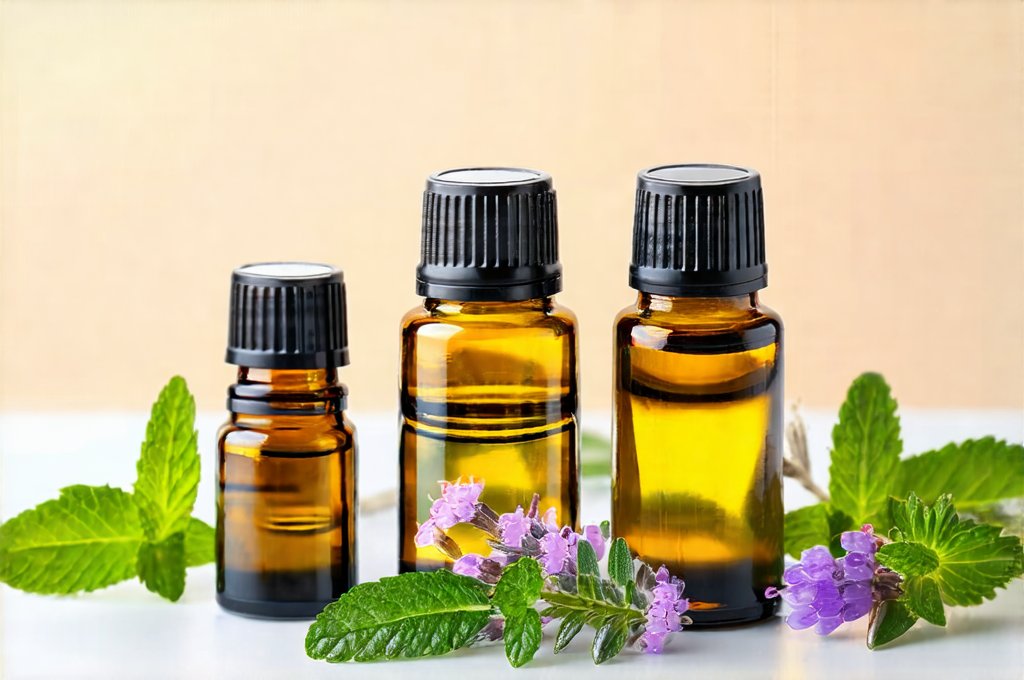The digestive system is a remarkably complex network, responsible for far more than simply processing food. It’s intimately connected to our overall wellbeing – impacting everything from mood and immunity to energy levels and even skin health. Disruptions in gut function, like sluggish motility (the movement of food through the digestive tract) or excessive gas production, are incredibly common experiences, often leading to discomfort, bloating, and a significant impact on quality of life. Many individuals seek natural approaches to support healthy digestion, and essential oils have emerged as one area of increasing interest, although understanding their role requires careful consideration and a nuanced approach.
Conventional treatments for gut motility issues and gas relief frequently focus on symptom management – antacids, laxatives, or anti-spasmodics can provide temporary reprieve but often don’t address the underlying cause. This has spurred a search for more holistic solutions that support the body’s natural processes. Essential oils, derived from plants and possessing complex chemical compositions, offer potential benefits due to their interactions with various physiological systems. However, it is crucial to remember that essential oils are potent substances and should never be used as a substitute for professional medical advice or treatment. Their application in digestive health requires knowledge, caution, and ideally, guidance from a qualified aromatherapy practitioner or healthcare provider.
Understanding Gut Motility & Gas Production
Gut motility refers to the contractions of muscles within the gastrointestinal tract that propel food along its journey. Healthy motility is essential for efficient digestion and nutrient absorption. Both too slow and too fast motility can cause problems. Slow motility leads to constipation, bloating, and potentially bacterial overgrowth, while excessively rapid motility can result in diarrhea and malabsorption. Gas production is a natural byproduct of digestion, but excessive gas can be incredibly uncomfortable, causing distension, cramping, and social anxiety. Several factors contribute to increased gas: diet (certain foods are more fermentable than others), swallowing air, imbalances in gut bacteria (dysbiosis), and impaired digestive enzyme function.
The intricate relationship between the gut microbiome and motility is increasingly recognized. A diverse and balanced microbiome supports healthy digestion and reduces inflammation, which can positively influence motility. Conversely, an imbalanced microbiome (often characterized by a reduction in beneficial bacteria) can contribute to both slow or rapid motility and increased gas production. Many essential oils contain compounds that may indirectly support gut health through their anti-inflammatory and antimicrobial properties – although research is still evolving.
Addressing these issues often involves lifestyle adjustments like dietary changes, stress management techniques, and incorporating probiotics into the diet. Essential oils should be considered an adjunct to these core strategies, rather than a primary solution. It’s important to emphasize that self-treating digestive problems without understanding the root cause can be detrimental; seeking professional diagnosis is always recommended. Understanding how connection and calm support digestion can play a role in overall wellness is paramount.
Potential Mechanisms of Action: How Essential Oils Might Help
The ways in which essential oils could influence gut motility and gas relief are multifaceted, involving several potential mechanisms. One key area lies in their impact on the enteric nervous system (ENS), often referred to as the “second brain.” The ENS is a complex network of neurons within the digestive tract that controls motility, secretion, and blood flow. Certain essential oil constituents have been shown to interact with receptors within the ENS, potentially modulating its activity. For instance, compounds like linalool (found in lavender and chamomile) may possess calming effects that can help reduce intestinal spasms and promote relaxation – potentially easing discomfort associated with gas or cramping.
Another mechanism relates to their anti-inflammatory properties. Chronic inflammation is a common underlying factor in many digestive disorders, contributing to both motility issues and increased sensitivity to gas. Essential oils like ginger and peppermint contain compounds (gingerol and menthol respectively) that have demonstrated in vitro and some in vivo anti-inflammatory effects. While more research is needed specifically on their gut-related impact, these properties suggest potential benefits for reducing inflammation in the digestive tract. Finally, certain essential oils can also influence muscle tone within the gastrointestinal tract. This could potentially help regulate motility – either by relaxing overly tense muscles (easing cramping) or stimulating sluggish ones (promoting peristalsis).
It’s crucial to reiterate that most of this research is preliminary and often conducted in vitro (in a lab setting) or in animal models. Translating these findings to human application requires careful consideration, and the efficacy and safety profile of essential oils for gut health remain areas of ongoing investigation. Many are now exploring how you build a tolerant gut over time with the right diet to support long term digestive health.
Essential Oils Traditionally Used for Digestive Support
Several essential oils have historically been used in aromatherapy to address digestive complaints. Peppermint oil is perhaps the most well-known, often recommended for irritable bowel syndrome (IBS) symptoms like bloating and gas. Its primary constituent, menthol, has spasmolytic properties – meaning it can help relax smooth muscle contractions in the gut. Ginger essential oil, derived from Zingiber officinale, contains gingerol, known for its anti-inflammatory and prokinetic effects (promoting gastric emptying). Roman chamomile is valued for its calming and soothing properties, potentially reducing intestinal spasms and anxiety related to digestive discomfort.
Other oils sometimes used include fennel, which traditionally has been employed for bloating and indigestion; cardamom, thought to aid digestion and reduce gas; and lemon, known for its cleansing and detoxifying properties (though caution should be exercised with citrus oils due to their photosensitivity). It is essential to remember that “traditionally used” does not equate to scientifically proven. While historical usage provides valuable insights, it doesn’t replace the need for rigorous scientific research. Furthermore, quality control is paramount when selecting essential oils; choose reputable brands that offer GC/MS (Gas Chromatography-Mass Spectrometry) reports verifying purity and chemical composition. Supporting your gut through seasonal produce support gut diversity can also play a role in overall health.
Methods of Application & Safety Considerations
Essential oils should never be ingested directly unless under the strict guidance of a qualified healthcare professional specifically trained in clinical aromatherapy. Internal use carries significant risks, including toxicity and interactions with medications. Safe methods for utilizing essential oils for digestive support primarily involve external application: – Aromatic Inhalation: Diffusing essential oils can offer calming effects and may indirectly impact the nervous system. Use a diffuser following manufacturer’s instructions, and ensure adequate ventilation. – Topical Application (with carrier oil): Diluting essential oils in a carrier oil (like jojoba, sweet almond, or fractionated coconut oil) allows for safe topical application. A common dilution ratio is 1-3% essential oil to carrier oil. Gently massage the diluted oil onto the abdomen in a clockwise direction to follow the natural path of digestion. – Compresses: Adding a few drops of diluted essential oil to warm water and applying it as a compress to the abdomen can also be soothing.
Safety considerations are paramount. Always perform a patch test before topical application to check for allergic reactions. Avoid using essential oils during pregnancy or breastfeeding without consulting a healthcare professional. Individuals with pre-existing medical conditions, particularly those related to the digestive system or nervous system, should exercise extreme caution and seek professional guidance. Certain essential oils can interact with medications; it’s crucial to inform your doctor about any aromatherapy treatments you are using. The importance of essential minerals for enzyme activation and support should not be overlooked.
The Importance of Holistic Digestive Support
While essential oils may offer supportive benefits for gut motility and gas relief, they are most effective when integrated into a holistic approach to digestive health. This includes: – Dietary Modifications: Identifying and eliminating food sensitivities or intolerances can significantly reduce bloating and discomfort. A diet rich in fiber, prebiotics (foods that feed beneficial gut bacteria), and probiotics (live microorganisms) supports a healthy microbiome. – Stress Management: Chronic stress negatively impacts digestion; techniques like meditation, yoga, or deep breathing exercises can help mitigate its effects. – Hydration: Adequate water intake is essential for maintaining healthy motility. – Regular Exercise: Physical activity promotes digestive function and reduces stress.
Essential oils should be viewed as complementary tools – not cures. Addressing the underlying causes of digestive issues through lifestyle adjustments remains the cornerstone of long-term health. Remember, seeking professional guidance from a healthcare provider or qualified aromatherapy practitioner is essential before incorporating essential oils into your wellness routine. This ensures safe and effective utilization tailored to your individual needs and health status. Focusing on a holistic approach that addresses diet, stress, and overall wellbeing will yield far greater results than relying solely on any single remedy, including essential oils. Many find that can gratitude practices support gut health as part of their routine too.


















